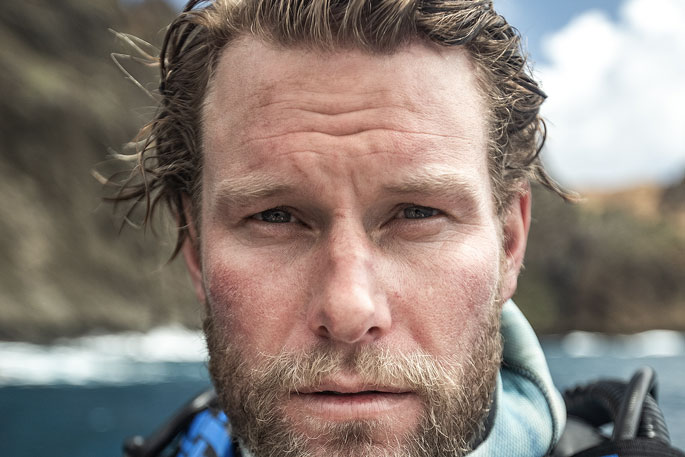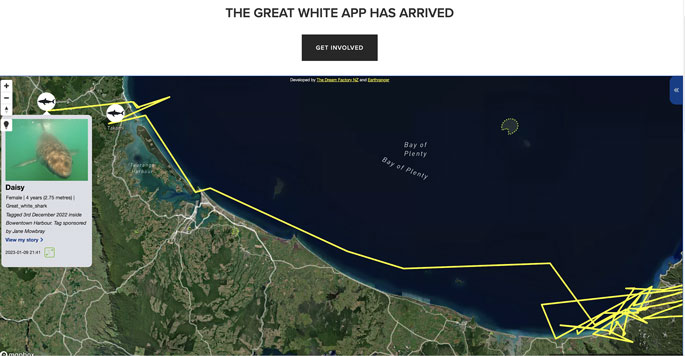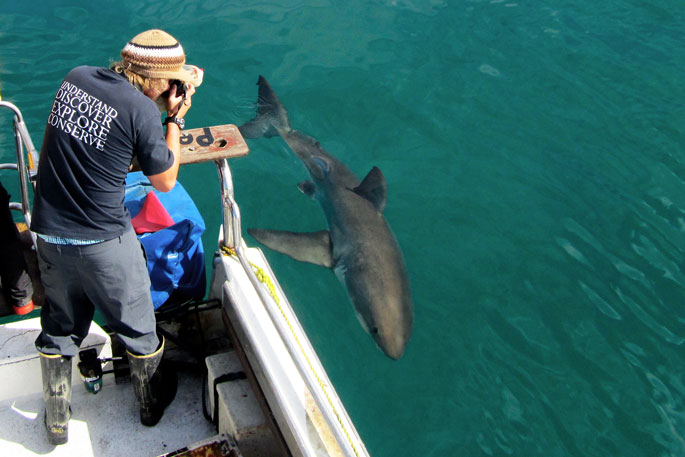Shark enthusiasts are able to follow the progress of two great white sharks swimming in Bay of Plenty waters through their mobile phones.
Dr Riley Elliott, who studies shark behaviour and migration, is busy deploying 20 tags, which will enable satellite tracking of 20 great white sharks.
The tracking information will help answer questions of where did these sharks come from, why are they here, and how does their movement and behaviour overlap with ours.
Satellite tags cost $3200 and also require satellite time of $800 per year. The public were invited to sponsor the tags as well as name their shark, with the first two being Daisy by Jane Mowbray, and Takami by Mazda NZ.
The Great White App receives locations of sharks in real time and displays them on a map on: www.sustainableoceansociety.co.nz
These locations only occur when a shark's dorsal fin, and thus the satellite tag, break the surface of the ocean and link to satellites in orbit.
The DOC-approved project commenced on December 1, 2022, and by January 3, all 20 tags had sponsors.
'Once I have deployed this round of 20 tags, I will endeavour to apply to DOC to tag more than 20 Great Whites,” says Dr Elliott.
 Dr Riley Elliott. Photo: Supplied.
Dr Riley Elliott. Photo: Supplied.
The time it may take to tag the first 20 sharks could put further tagging years away though, so he has suggested other ways people can help.
'This project is also acoustic tagging the GWs, which uses smaller ‘sound emitting' tags, enabling me to actively track the sharks in real time, using an underwater hydrophone and drone flying above.
'This gives us real time insight as to what the sharks are doing in certain areas. I will also be deploying acoustic receiver stations around areas of interest, like swimming beaches, ski lanes, fishing spots and surf zones. These receivers detect acoustically tagged sharks for periods up to 10 years, and thus map the habitat use of the GWs over the long term, and do not require the sharks to break the water's surface, like satellite tags do.”
 The map showing Daisy being tracked across the Bay of Plenty to Bowentown. Image Supplied.
The map showing Daisy being tracked across the Bay of Plenty to Bowentown. Image Supplied.
The acoustic tags cost $700 each, and while they will not come with naming rights, the sponsor of any acoustic tag will be named in the profile part of satellite tagged Great Whites.
To learn more email: [email protected]
To follow the sharks go to: www.sustainableoceansociety.co.nz



0 comments
Leave a Comment
You must be logged in to make a comment.